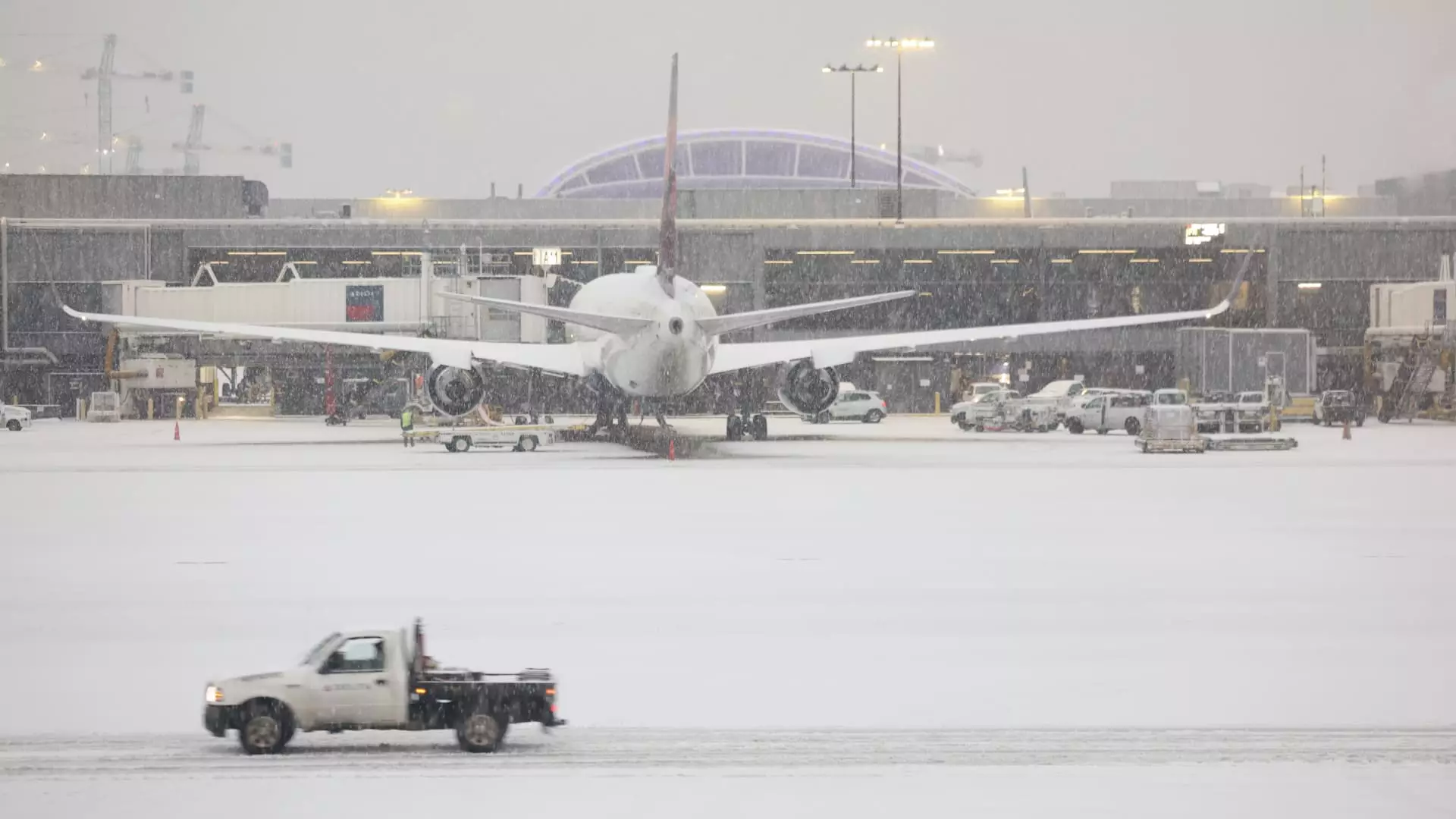The onset of a massive winter storm brought unprecedented travel chaos to the Southern United States last Friday. Over 2,000 flights were scrapped, with an additional 2,000 experiencing delays, underscoring the harsh impact of the weather on the aviation industry. The storm’s effects were felt most acutely at Hartsfield-Jackson Atlanta International Airport, the world’s busiest hub and a cornerstone for Delta Air Lines. The storm not only caused flight cancellations but also led to alarming safety incidents, propelling safety protocols into the spotlight.
Safety Protocols Under Scrutiny
A critical incident involving a Delta Air Lines Boeing 757-300 exemplified the storm’s challenges. As the aircraft attempted to take off from Atlanta to Minneapolis-St. Paul, an engine issue prompted the flight crew to initiate emergency protocols. The swift action led to the evacuation of 201 passengers and seven crew members via emergency slides. Delta later released a statement emphasizing their commitment to safety and apologizing to passengers for the harrowing experience. “Nothing is more important than the safety of our people and customers,” the airline reassured the public, showcasing an acute awareness of the repercussions that such incidents can yield for airline reputation and passenger trust.
The winter storm wreaked havoc not only at Atlanta International but also at other prominent airports like Dallas/Fort Worth International and Charlotte Douglas International. The storm led to the cancellation of more than 1,000 flights both to and from these hubs, with operations in Dallas/Fort Worth particularly hard hit. The severity of the winter conditions resulted in a ground stop at Atlanta, an emergency measure aimed at preventing further congestion at the already strained airport. In times of such travel upheaval, passenger inconvenience is exacerbated by the ripple effects that alter flight schedules far from the actual site of disruption.
In the face of the overwhelming weather disruptions, major airlines—including Delta, Southwest, and American—sought to mitigate passenger grievances by waiving change fees and fare differences. This proactive response is vital in maintaining customer loyalty during crises, as passengers are reassured that their travel plans will be accommodated despite the conditions beyond their control. As airlines aim to balance operational efficiency with customer satisfaction, their ability to navigate through such weather crises will be an essential part of rebuilding trust with their clientele.
The Bigger Picture of Weather Impacts
This instance reiterates the increasingly volatile nature of weather patterns and their direct correlations with air travel. With climate change intensifying the unpredictability of weather, airlines and airports must prioritize infrastructural resilience and rapid response measures to safeguard both operations and customer well-being. The consequences of such storms stretch far beyond immediate cancellations—they resonate through a network of logistical challenges that requires the aviation industry to adapt proactively.
Last Friday’s severe weather incident serves as a stark reminder of nature’s unpredictable impact on travel logistics, prompting both air carriers and passengers to stay alert and engaged with evolving protocols and situational measures.

